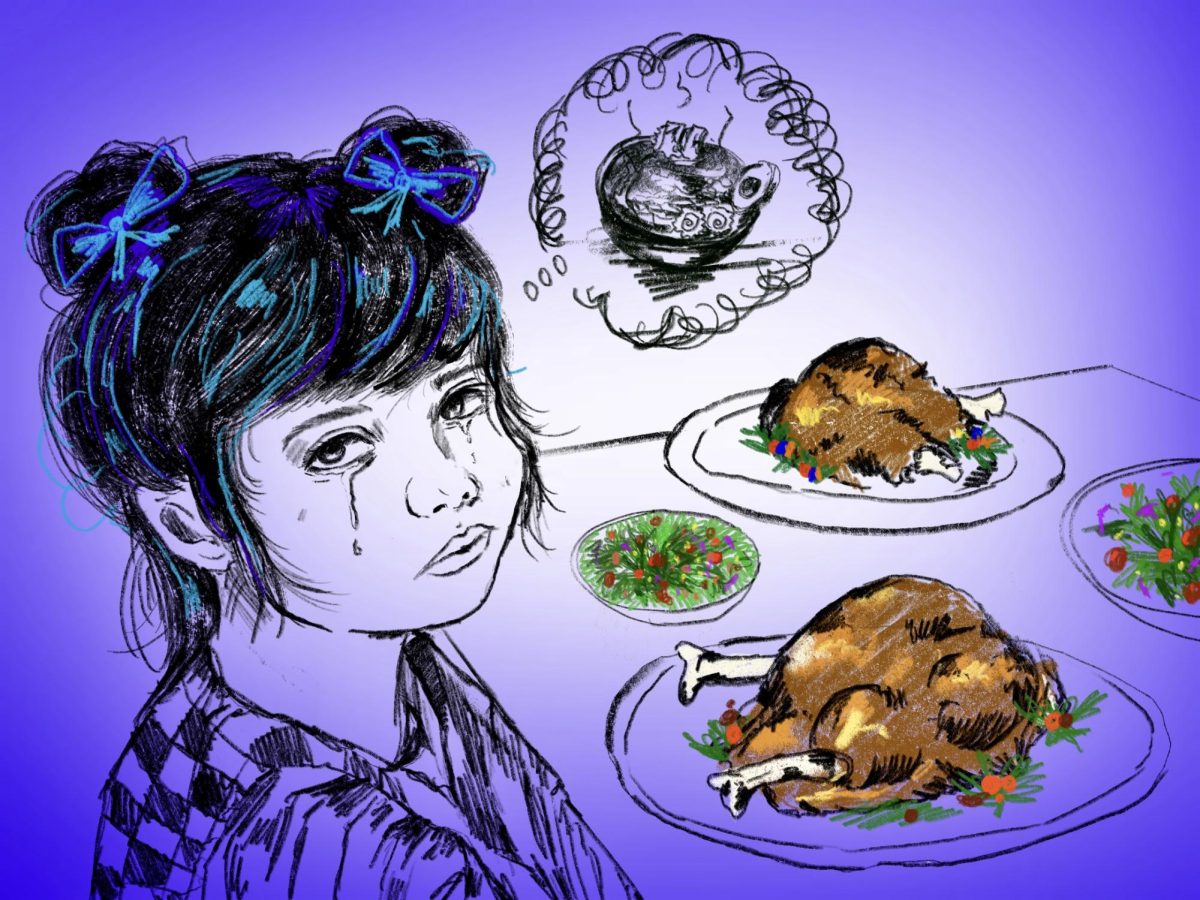Most associate fall with warm pumpkin spice lattes, savory turkey and fun times with family. However, some students dread the holiday season because of pervasive diet culture intertwined with holiday celebrations.
Amidst the ongoing mental health crisis, eating disorders continue impacting college students. Newfound freedom in college can lead to an unhealthy relationship with food. Since 2013, the rate of eating disorders among college students has increased from 15% to 28%.
Food-based holidays can catalyze disordered eating behaviors for at-risk individuals like college students. Before they return home, students should embrace resources for preventative mental health by listening to their bodily needs and fighting the urge to villainize food.
“During the holidays, you may hear folks say, ‘Oh, I gotta walk this off’ or ‘I got to burn this off,’” said social work professor Erin MacDonald, who studies the intersection between queerness, mental health and eating disorders. “We don’t eat during the day, we have that meal around 3 p.m. and we’re famished. There’s lots of (disordered eating) behaviors that have become normalized.”
The idea of “Freshman 15” already encourages freshmen to focus on unhealthy restricting that can lead to overindulging, and returning home for the holidays can further push these harmful behaviors. Similar to getting a flu shot before flu season, strengthening coping mechanisms and developing healthy habits can mitigate mental health crises.
“I wouldn’t recommend waiting until the house is on fire to practice fire safety,” Healthy Horns dietitian Jennifer Barnoud said. “We don’t want to wait until everything is in chaos before implementing things that improve your quality of life.”
Between classes, extracurriculars and internships, students may experience obstacles to developing a healthy relationship with food. But by establishing clear boundaries and equating eating with self-care, students can better understand their bodies.
Interpersonal communications junior Cecilia Gullett struggled to prioritize her bodily needs and hunger when she first entered college due to her 20-hour work schedule as an Austin tour guide.
“In high school, it was easier because my mom loves to cook, … whereas now it’s all on me,” Gullett said. “I had to ask (my boss) to be able to leave two hours before my class instead (of one hour) so that I could go home and have a meal.”
UT Nutrition Services workshops aim to strengthen students’ connection with their bodily needs, self-care and mental health. Workshops like Mind, Body, Food & Movement and Drop-in Meal Planning Sessions can help students reduce symptoms of anxiety and depression by reshaping their perspective on food.
“Our body is constantly communicating with us,” Barnoud said. “Some folks are disconnected from their body’s messages, and then they end up not knowing what they need in order to take care of themselves. When we are engaging in a practice of mindful awareness and curiosity with the (hunger) messages from our body, that gives us more guidance in how we operate in the world.”
Barnoud said that eating consistently throughout the day, having supportive friends and allowing yourself to enjoy food can all contribute to a healthy relationship with eating. Through personal efforts or in partnership with UT Nutrition Services, students should embrace preventative mental health measures to prepare for the potential stressors of the holiday season.
“If you want to have a bagel on Thanksgiving morning — do it,” MacDonald said. “Don’t wait until 3 p.m. because everyone else is. Take good care of yourself, and let other people manage themselves.”
Eades is a Plan II and journalism sophomore from Dallas, Texas.















